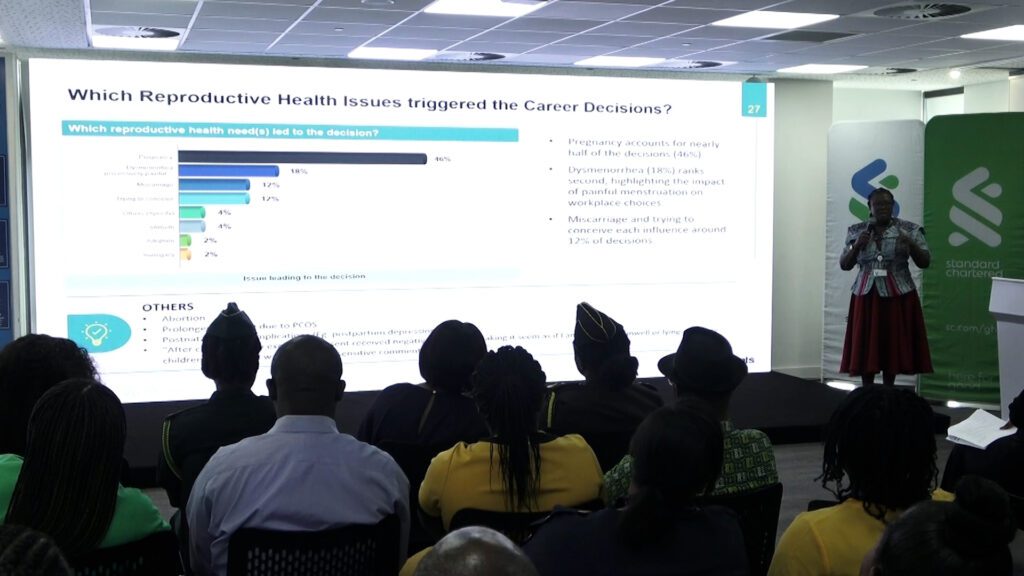Impact of Reproductive Health on Women’s Career Choices
A recent study by the research organization Konfidants has unveiled that 46% of women identify pregnancy as the leading reason for changing their career trajectories. Other notable factors include debilitating menstrual pain and instances of miscarriage, revealing the profound effect that reproductive health issues have on women’s professional lives.
The results, shared on Thursday, March 27, bring to light the challenges women face as they strive to manage their careers alongside reproductive health concerns.
Expert Insights on the Findings
Gender and Inclusion Advisor Adadzewa Otoo, who presented the report, highlighted the significant influence of these issues on women’s job-related decisions. “Pregnancy is clearly the top reason women reconsider their careers, followed by severe menstrual pain. Survey participants also mentioned other factors such as abortion and prolonged bleeding due to polycystic ovary syndrome (PCOS), which is often associated with painful menstruation,” she elaborated.
Otoo also pointed out the prevalence of postpartum depression and other postnatal complications that often go unnoticed yet heavily impact women’s health and career paths. “One respondent brought up postpartum depression, a topic that is often under-discussed despite its significant effect on many women. Another participant identified postnatal complications as critical factors influencing career decisions,” she noted.
Call to Action from Industry Representatives
In light of these findings, Nora Bannerman-Abbott from the Association of Ghana Industries (AGI) urged businesses to take proactive steps in addressing women’s health issues in the workplace. She proposed the creation of tailored workplace policies that cater to women’s health requirements and encouraged the formation of welfare committees to advocate for improved support systems for female employees.
“We began by developing specific policies aimed at recognizing the unique needs of our women employees. When organizations implement dedicated policies, employees feel valued and understood,” Bannerman-Abbott explained.
Furthermore, she emphasized the crucial role of welfare committees in fostering an encouraging environment for women, especially for those who may be reluctant to express their concerns. “Such committees facilitate ongoing dialogue. Our research found that some women were hesitant to share their experiences, but these committees empower bolder voices to represent the collective concerns of others,” she concluded.


